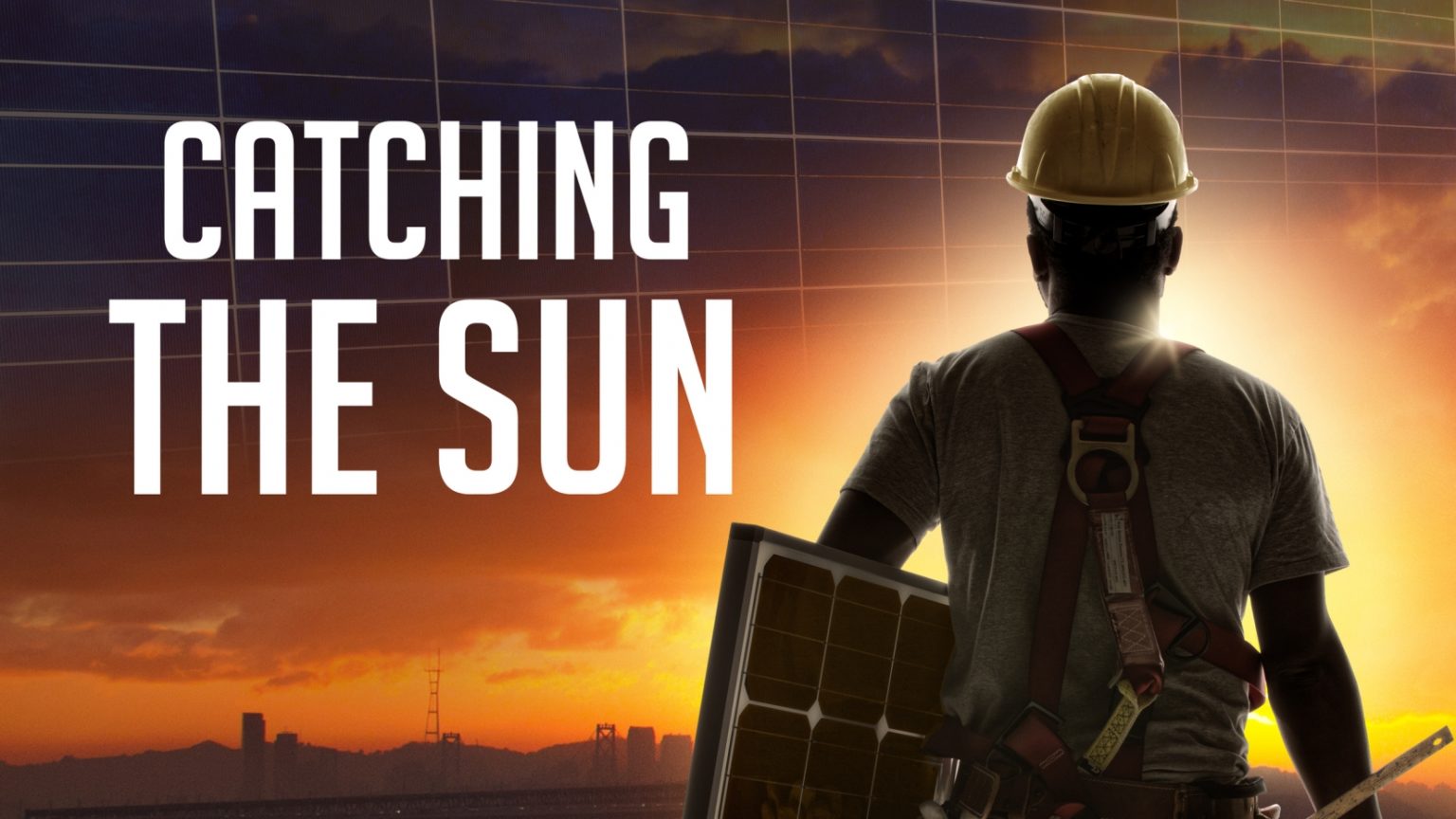A man laid off in his forties who wants to be part of the green economy of the future. A Chinese solar energy executive whose childhood village didn’t get electricity until he was seven. A right-wing Tea Party activist crusading for rooftop solar.
These are some of the people featured in Shalini Kantayya’s new documentary, Catching the Sun, which presents the climate crisis and American employment woes together with one solution: solar energy.
Despite America’s huge solar capacity and consistent history of ingenuity, China has excelled as the world’s leader in solar panel manufacturing, and European and Central American nations lead in percent renewable energy production.
Decades of manufactured climate change denial, political contributions and lobbying of U.S. politicians resulting in huge tax breaks to powerful dirty energy companies, and other tactics have propped up fossil fuels as the dominant energy sources.
Factor in fossil fuel industry-funded attacks on clean energy, and it becomes clear why real change or challenges to fossil fuel incumbency are difficult at the federal level.
It’s people at the state and local level who can make change happen in the U.S., Kantayya told DeSmog. Community work around solar energy that she witnessed in Richmond, California inspired her to make the film.
Kantayya had become friends with environmentalist Van Jones through activist circles, and he introduced her to Solar Richmond, a nonprofit organization that trains low-income residents for jobs in the solar industry.
She met “these incredible people…mostly young men from working-class backgrounds without a lot of economic opportunity who were excited about solar energy.” Thus began her six-year documentary project.
“I wondered if solar could not just be good for the planet but also drive economic opportunities,” she said.
The green jobs program was impressive considering Richmond’s biggest employer is oil giant Chevron.
In 2012, a fire at Chevron’s oil refinery in the city sent 15,000 people to the hospital. That year, the company sunk at least $1.2 million into three city council races, putting two industry-friendly candidates on the council. Two years later and facing a lawsuit surrounding the fire, the corporation poured $3 million into city council races, but this time all four candidates it backed were defeated after two years of citizen organizing against the big polluter.
Pushing forward with solar energy and fighting Big Energy is exactly what needs to continue happening around the country, said Kantayya. Citizen action also in California prevented the state’s public utilities commission from doing away with net metering for solar customers, preserving a viable third-party solar market and keeping thousands of jobs in the state.
Grassroots activism led to the fracking ban in New York state. And a the Green Tea Coalition, an alliance of right-wing and environmental groups spearheaded by Tea Party activist Debbie Dooley, pressured Georgia Power to include more solar generation in its Integrated Resource Plan and Republican state lawmakers in Georgia to legalize third-party rooftop solar.
At the national level, public pressure has convinced the Obama administration to reject the Keystone XL tar sands pipeline and, most recently, oil drilling off the Atlantic coast.
Still, Kantayya is skeptical of significant change happening on the federal level. Environmental policy “change can happen in the way the right to marry happened,” she said. “City by city and state by state.”
Dooley agrees, saying in the film, “We don’t have to wait on the gridlock in Washington, D.C. One state at a time, we will win.” She is currently continuing her fight for solar energy in Florida and other states.
The film follows a number of characters including two men in the Solar Richmond job training program, Dooley, Van Jones, and Wally Jiang, a prolific Chinese solar executive with financial backing from his government and business in many countries around the world.
“He’s always moving at light speed,” Kantayya said of Jiang, whose company is called Westech. “And he has the benefit of a government that has made the sale of clean energy a priority.”
Can the U.S. ever catch up to China in the solar market? Wither India?
“The U.S. has an amazing capacity for research, original thought and innovation, but we are hanging on fingers and toes to last century’s technology,” said Kantayya. “If we decide we want to do this, to pass long-term policy in this direction, we will make the shift.”
While China is excelling in solar production, its southern neighbor India is not faring as well, in part because of U.S. policy. The U.S. complained in 2013 that India’s substantial solar plan discriminates against American companies by requiring that ten percent of its solar power come from domestically produced panels and cells. The World Trade Organization ruled against this aspect of its plan in February.
Kantayya thinks the ruling is “vastly unfair” and India should have the right to self-determine its energy future. So should U.S. states.
America’s biggest solar panel manufacturers may be getting a boost from American trade policies, but they’re up against conservative forces in some U.S. states such as Nevada, which killed net metering, and North Carolina, which still does not allow third-party solar.
Catching the Sun situates the American solar market in a global context, critical of the country’s resistance to change but hopeful that, with continued citizen engagement, the U.S. will commit to protecting the environment and creating millions of jobs.
The documentary is part of Kantayya’s SUNCATCHER campaign, which will use her work to educate the public and push for change.
Backed by over 200 grassroots organizations including Green for All, Sierra Club and the NAACP, the initiative will use Catching the Sun as well as a number of short videos directed by Kantayya to educate people about the growing accessibility and affordability of solar energy.
Catching the Sun opened in New York City on April 1 at Cinema Village. Information on show times and Q&A sessions with Kantayya is available here.
Subscribe to our newsletter
Stay up to date with DeSmog news and alerts







